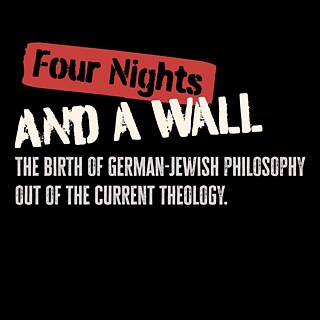|
5:30 PM-8:00 PM
Forgiveness: Udi Aloni, Omri Boehm, & Slavoj Zizek
Lecture & Film Screening|
-
Goethe-Institut New York, New York, NY
- Language English
- Price Free
- Part of series: Four Nights and a Wall

PROGRAM
5:30 - 6:15 pm: Slavoj Žižek*Introduction to theological political thinking
6:15 - 8:00 pm: Forgiveness (Udi Aloni, 2006, 97 min.)
Forgiveness is a psychological thriller that explores the tragedies of the Middle East. David, a young American-Israeli, returns to Israel to join the army, only to find himself in a catatonic state after accidentally shooting a Palestinian girl while on patrol. He is committed to a mental institution which sits on the ruins of a Palestinian village. The head psychiatrist tries to cure him with medication, while another patient in the hospital, a Holocaust survivor, tries to redeem him by opening his heart to the ghost that haunts him.
*This event will take place in person at Goethe-Institut New York (30 Irving Place), and Slavoj Zizek will appear via Zoom.
Udi Aloni (b. 1959) is a filmmaker, writer, visual artist and political activist whose works focus on the interrelationships between art, theory, and action. His book, What Does a Jew Want? (Columbia University Press), and his last film, Why is we Americans (2020), explored the legacy of African American poet Amiri Baraka. Aloni lives in Berlin, New York and Tel Aviv.
Omri Boehm (b. 1979) is a philosopher and associate professor of philosophy at the New School for Social Research. He is known for his interpretation of the Binding of Isaac (Genesis 22) and his work on Spinoza and Kant. His latest book, Radical Universalism was published in Germany in 2022. Boehm's writings have appeared in the New York Times, Washington Post, Haaretz and Die Zeit, among others.
Slavoj Žižek (b. 1949) is a Slovenian philosopher, cultural theorist and public intellectual.He primarily works on continental philosophy (particularly Hegelianism, psychoanalysis and Marxism) and political theory. He was described by Terry Eagleton as the "most formidably brilliant recent theorist."
Location
Goethe-Institut New York
30 Irving Place
New York, NY 10003
USA
30 Irving Place
New York, NY 10003
USA
Registration required
